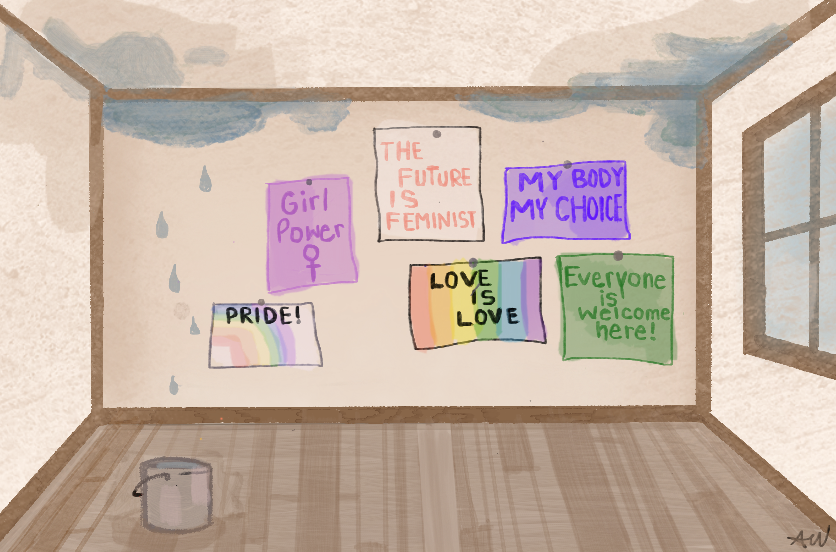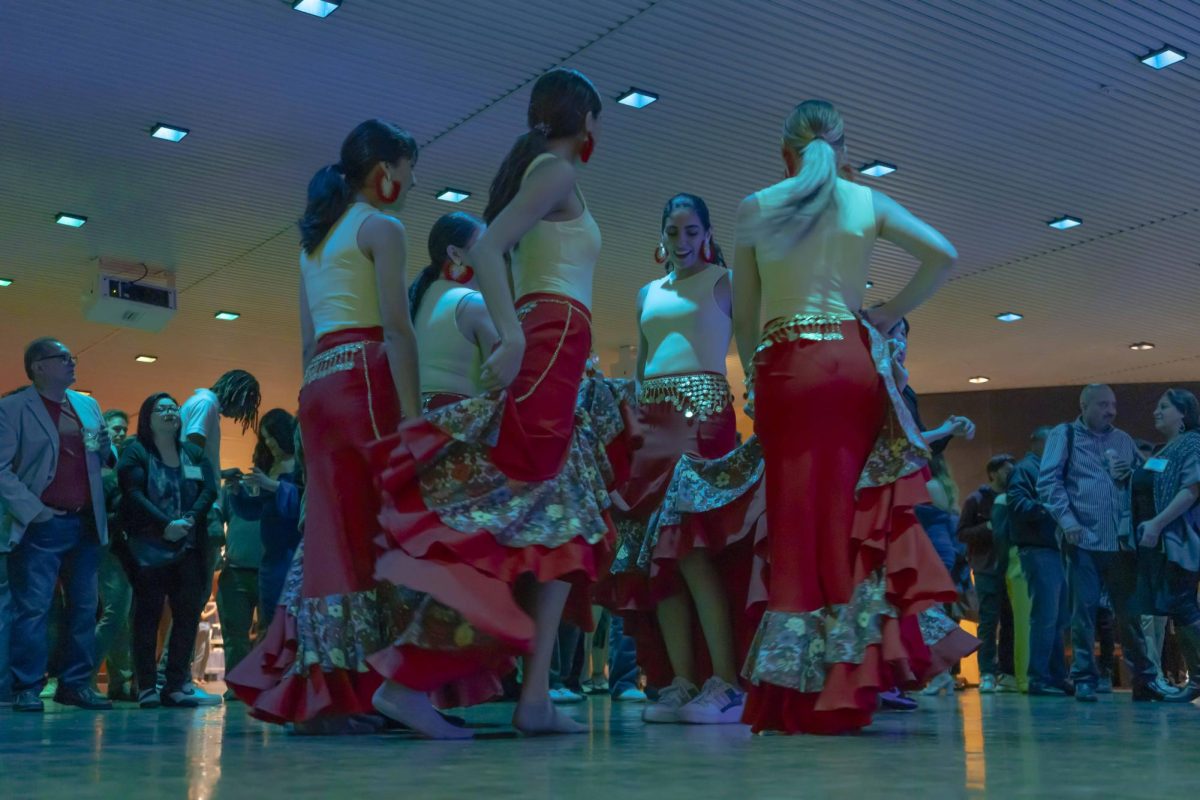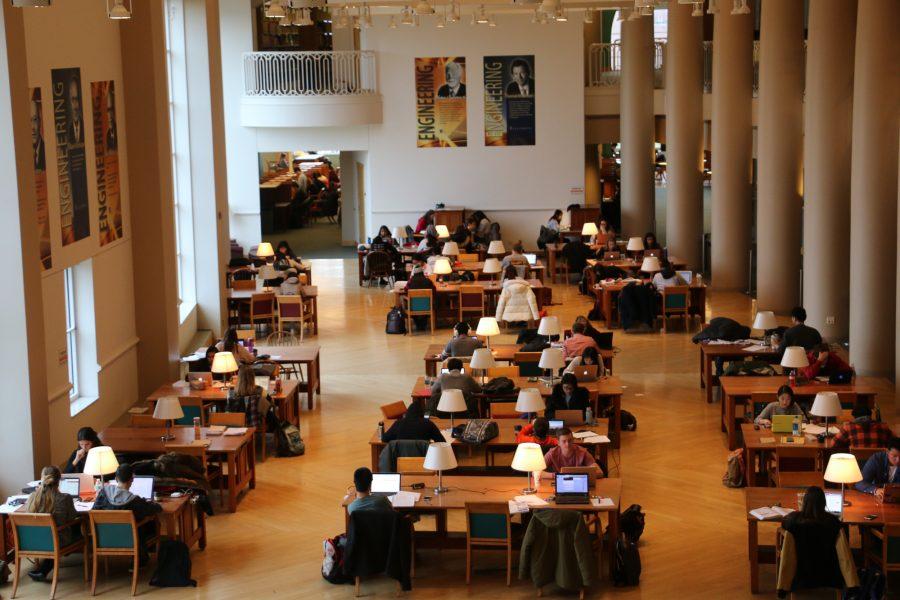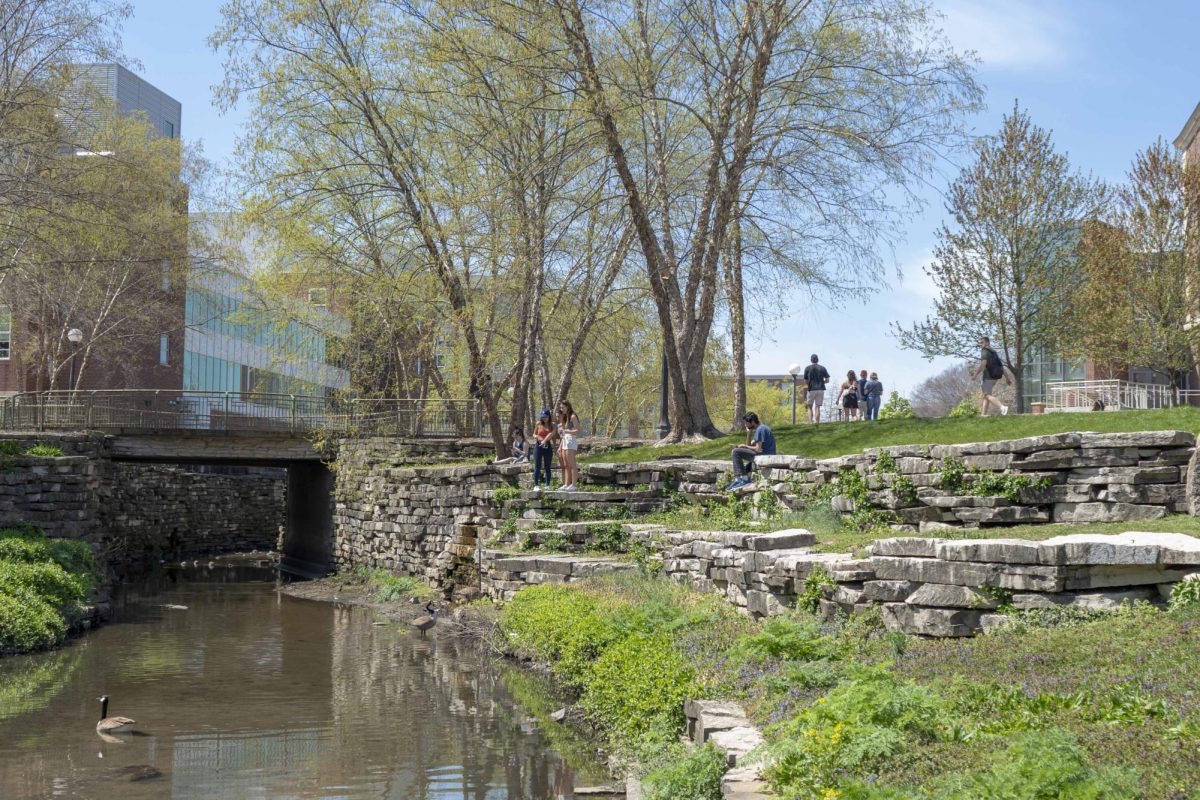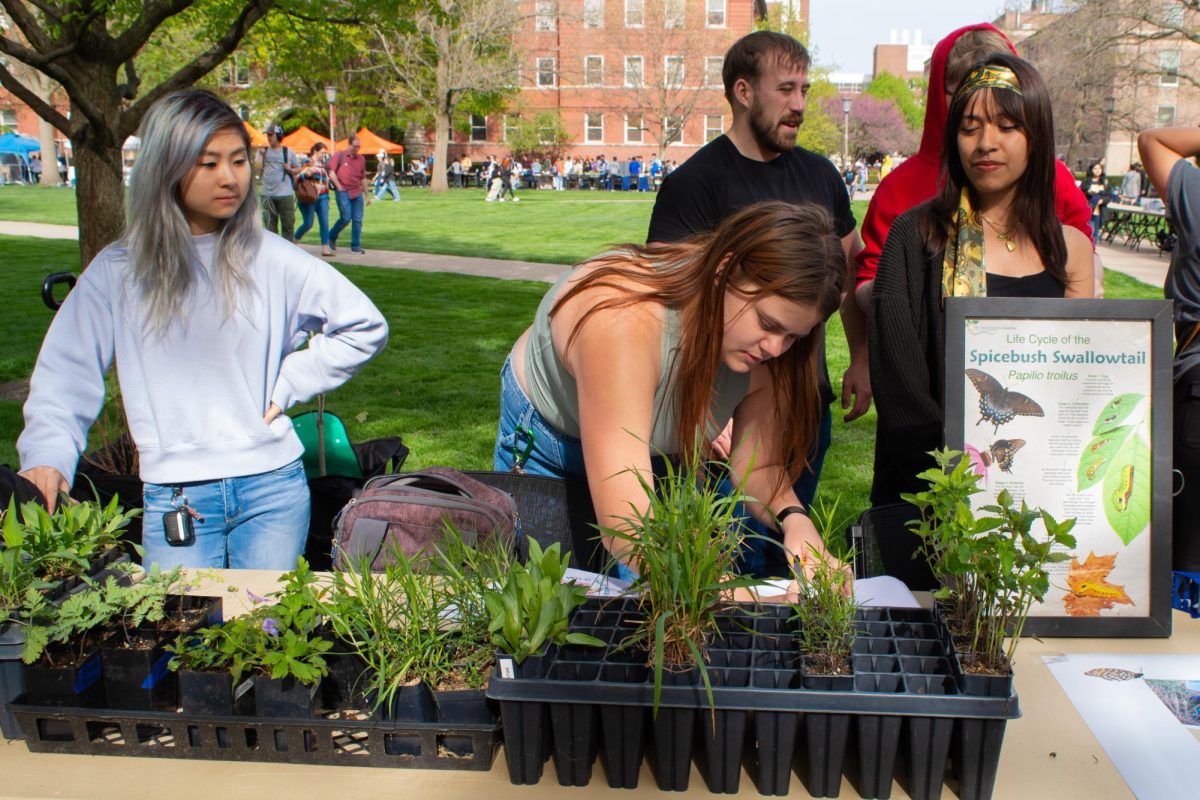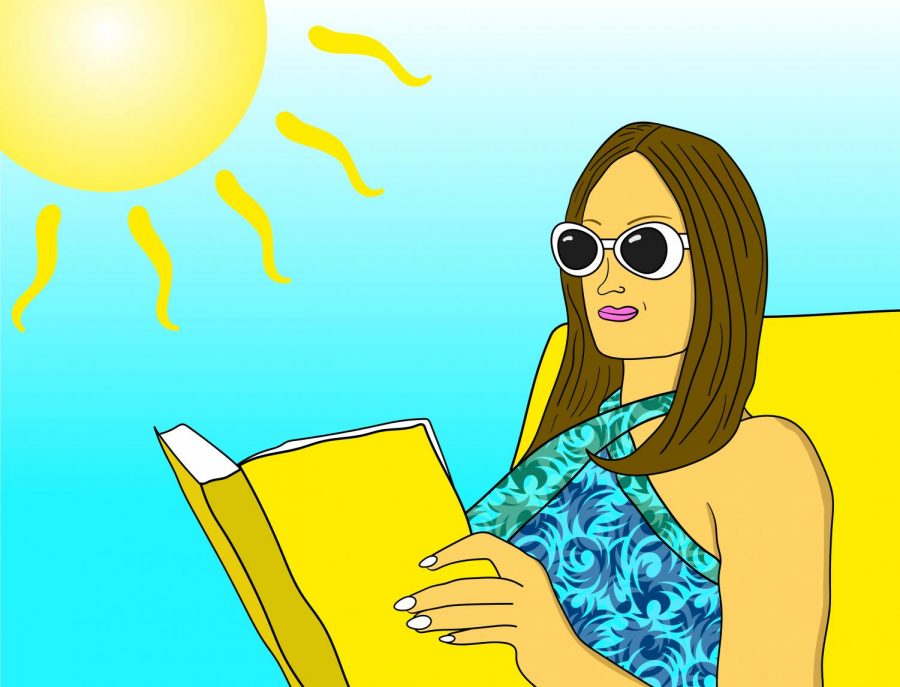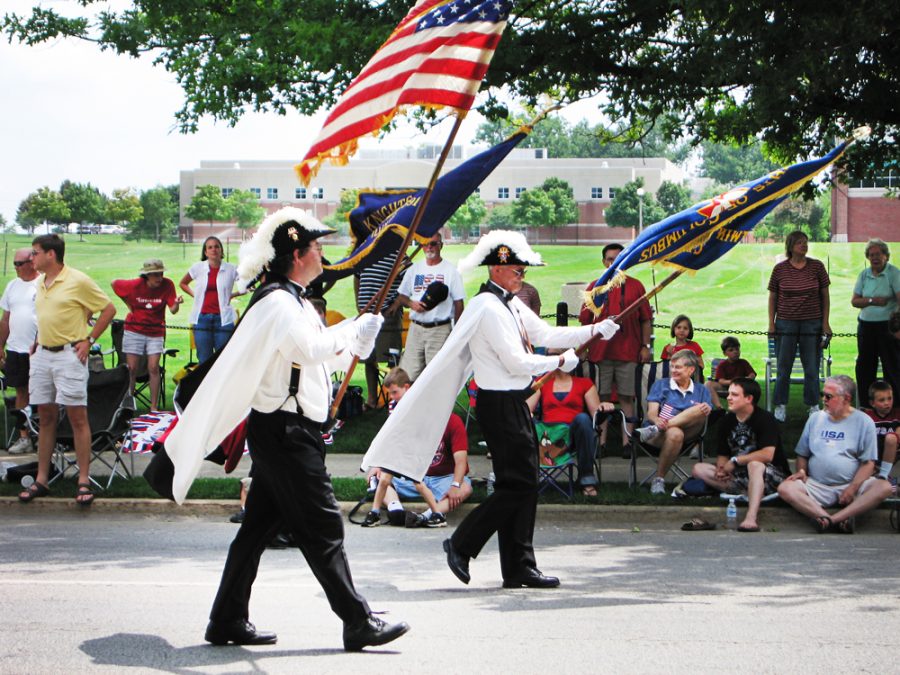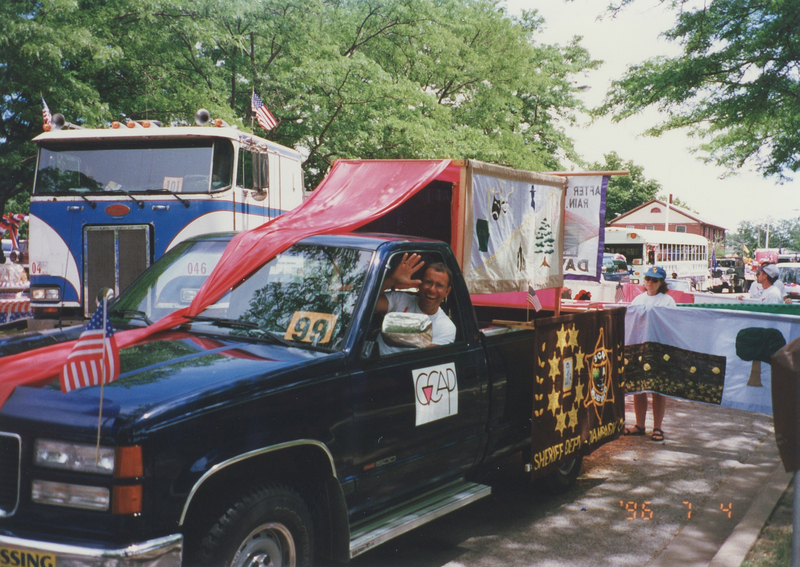As the seasons continue to change, the Midwest wrestles with rainy days and cloudy skies. Along Nevada Street, the Gender and Women’s Studies House, nestled among other ethnic studies centers, is currently grappling with water damage due to rain and other atmospheric factors.
“When it rains, the GWS House leaks!” read an Instagram reel on Sep. 21 that recorded a water leak in the GWS House. The video was sent by Mimi Thi Nguyen, associate professor and the chair of the GWS department.
In the video, the wooden floor in the faculty’s office is soaked by water leaks from the ceiling.
According to Nguyen, the water leaks she posted on social media are in professor Toby Beauchamp’s office, who serves as the associate chair of the GWS department.
“It was a frantic day,” Beauchamp said. “In the attic above my office, you could see the sky through a hole in the roof.”
Get The Daily Illini in your inbox!
After the water damage, Beauchamp left his office on the second floor for work and moved some belongings to Nguyen’s office. The issue isn’t limited to the second floor, which houses faculty offices. The basement of the house occasionally floods during rainy days, Nguyen said.
The GWS House basement, used as offices for teacher’s assistants and classrooms, bears the brunt of these challenges. Water accumulation has caused the wooden veneers of doors and furniture to warp, cracking up to five inches above the ground.
“We run this dehumidifier all the time because it gets so wet and damp down here,” Nguyen said. “So this is always on and sometimes it does short out the power in the building.”
In one of the basement classrooms, water leakage caused the paint to peel off the walls. In an attempt to address the issue, Nguyen covered the affected area with a tapestry.
Nguyen said Facilities & Services has been responsive to their repair requests, preventing the basement from flooding since spring.
Another associate professor, Karen Flynn, said she found the roof in her office had fallen on a rainy day.
“I often think about, ‘What if I was in the office when the roof came in?’” Flynn said.
The GWS House, like several other ethnic studies houses on Nevada Street, is a historic building dating back to the 1930s.
For the past decade, it has functioned as the central hub for the Department of GWS, holding various events and serving as a safe space for women, feminists, students of color and the LGBTQ+ community on campus.
“There are a lot of really great things about the building,” Nguyen said.
In 2021, an article from LAS News reported the University and the College of Liberal Arts & Sciences were in the process of planning a new building for ethnic studies and the GWS department. This new facility aimed to unite five departments under one roof, accommodating approximately 60 faculty members who are currently spread across campus.
According to Nguyen, Beauchamp and Flynn, the specific details of the definite plan and the timeline for the new building are unknown to them.
Aly Cigelnik, senior in LAS and co-president of the Gender and Women’s Studies Club, said the details about the new building have created confusion throughout her years on campus.
“Since I got here as a freshman, the University has promised us a new building that’s going to be combined with some of the other cultural studies,” Cigelnik said. “Now I’m in my final year here, and there’s still no more progress on that.”
Nguyen said maintaining the GWS House demands significant financial resources due to its age.
Beauchamp identified the structural issues in the GWS House and other ethnic studies houses as threefold: Besides the water leaks due to aged building foundations, the building is simultaneously struggling with limited space for faculty and events, as well as a lack of accessibility.
Some of the faculty are housed in other places on campus and two of the professors share an office on the second floor, Beauchamp said.
Due to the limited working space for faculty, Nguyen said she had to ask a senior professor, Chantal Nadeau, who has been working in the house since 2008, to relocate her office to La Casa Cultural Latina.
“It’s not great that we have to do those kinds of things, right,” Nguyen said. “Where we have to shuffle people around and have faculty share offices because we just don’t have the room.”
Another significant issue concerning the house is its limited accessibility, according to Cigelnik. The long ramp connecting to the first floor is the only extension in the house that meets the minimum standards outlined by the Americans with Disabilities Act for accessible design.
“A lot of times since it is an old ramp made of wood, we have to get it fixed regularly,” Cigelnik said.
Meetings with faculty are a challenge for students with disabilities, as they are hindered by narrow and steep stairs, preventing easy access to their offices on the second floor and the basement.
“If you can’t get up there then you need to find another location to do it, which is such a hassle, and that cuts off a lot of our resources,” Cigelnik said.
According to Beauchamp, the Department of GWS aims to build an inviting environment for the campus community and guests, but he sometimes feels hesitant to show the GWS House to invited speakers and students’ families.
“I definitely worry that the disrepair, inaccessibility and lack of office space impede our ability to recruit and retain faculty,” Beauchamp said.
Gender and women’s studies debuted in the academic arena in the 1970s during the era of the second-wave feminist movement in the U.S. The Department of GWS at the University of Illinois was established in 2010, 30 years after the first gender and women’s studies course emerged on campus.
“We explain issues that impact people on an everyday basis, things that people take for granted,” Flynn said.
In 2014, professor Flynn submitted a report to the College of LAS, emphasizing the importance of an intersectional approach to fostering an inclusive environment for students from marginalized groups.
Flynn said she often drew connections between the disrepair of cultural buildings and the lack of resources in urban communities. According to Flynn, people attach values to where others live, which is why there are often not sufficient resources received by the inner city areas.
“I just sometimes feel the same way that the fact that we live in these spaces, it may indicate that we don’t matter as much as, you know, other disciplines,” Flynn said.
Since Nguyen posted the water leak issues on social media, students and alumni commented on the post to show their support for the GWS House.
“Our students and our alumni are so invested in our academic units and their well-being, and they really want to advocate on our behalf,” Nguyen said. “So really, I think what students and alums can do is let the University know that they really value the work that we do in gender and women studies and ethnic studies.”
Cigelnik said she would like to see the University put immediate funds into transforming the GWS House into a safe space. She also encouraged students to continue to show support and value the department’s work in providing a safe space for a variety of groups on campus.
Flynn stated her intention to frame the structural building issue in the ethnic and gender studies department as a broader University concern, rather than attributing it solely to a specific college or individual.
“All of everyone needs to be on board in terms of addressing this large, unfortunate structural issue,” said Flynn.






